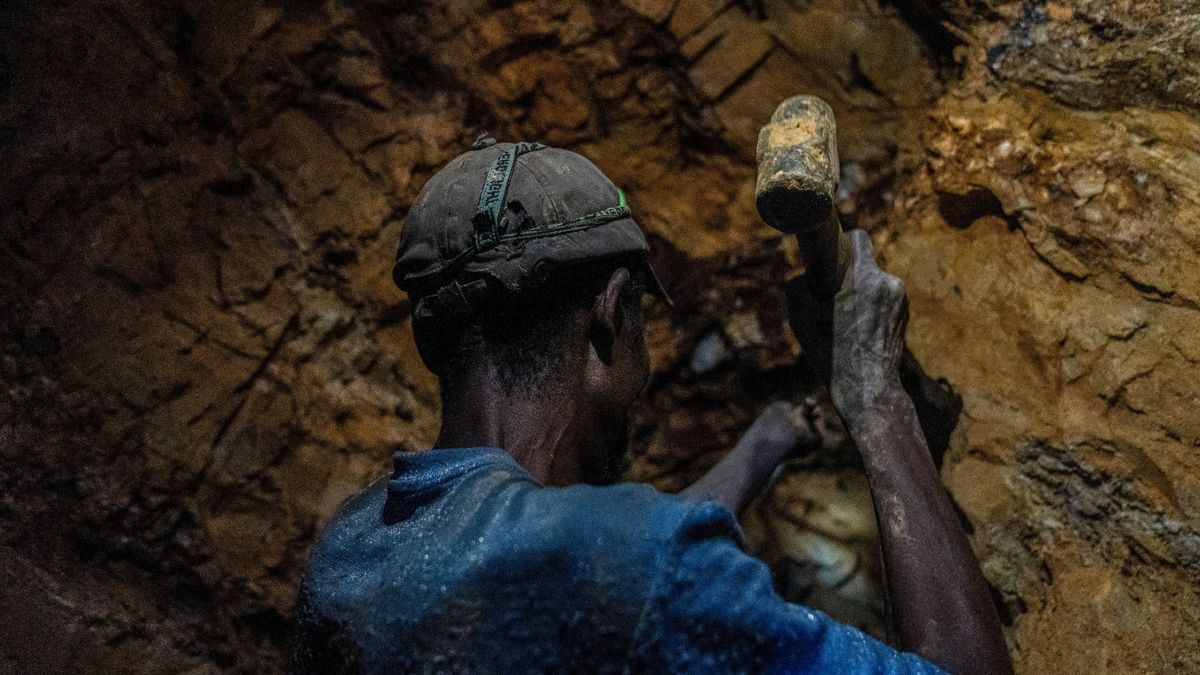Unveiling the Truth: Are Our Smartphones Bolstering Congolese Militias?
In today’s hyper-connected world, smartphones have become indispensable tools for communication, information, and entertainment. However, beneath the sleek surface of these devices lies a troubling truth: the minerals that power our smartphones are often sourced from conflict zones, particularly in the Democratic Republic of Congo (DRC). This article delves into the complex relationship between smartphone technology and its unintended support of militias in the DRC, exploring the supply chain of essential minerals, the ethical dilemmas involved, and the geopolitical implications at play.
The Minerals Behind Our Smartphones
Smartphones are composed of various materials, many of which are mined from the earth. Key minerals crucial for smartphone production include:
- Tantalum: Used in capacitors, essential for phone functionality.
- Tin: Found in solder, connecting various components.
- Tungsten: Provides strength and is used in various parts.
- Gold: Conducts electricity and is used in connectors and circuit boards.
Much of the tantalum, tin, tungsten, and gold used in electronics comes from the DRC, a country rich in natural resources but plagued by decades of conflict. Various armed groups control mines and exploit workers, leading to a cycle of violence that is often funded by the very minerals that are in high demand for our smartphones.
How Smartphone Demand Fuels Conflict
The relationship between smartphone demand and militia funding is intricate. As global demand for smartphones continues to rise, so does the need for the minerals that power these devices. Unfortunately, this demand has significant consequences for the DRC:
- Militia Control: Various militias in the DRC exert control over mining operations, often through violence and intimidation. These groups profit from the sale of conflict minerals, which are then smuggled out of the country.
- Exploitation of Workers: Miners, including children, work under hazardous conditions for meager wages. The lack of regulation and oversight allows for rampant human rights abuses.
- Perpetuation of Violence: The revenue generated from these minerals fuels ongoing violence, as militias use the funds to purchase weapons and maintain their operations.
This cycle of exploitation and violence raises critical ethical questions about the true cost of our smartphones. While consumers may be unaware of the origins of the materials in their devices, the reality is that their choices can have far-reaching consequences.
Efforts to Address the Issue
In response to the troubling connection between smartphones and conflict minerals, various initiatives have emerged to promote ethical sourcing and transparency. Some notable efforts include:
- The Dodd-Frank Act: Enacted in the United States, this legislation requires companies to disclose the sources of conflict minerals used in their products, aiming to reduce the trade in conflict minerals from the DRC.
- Responsible Minerals Initiative (RMI): This organization works with companies to improve supply chain transparency and promote responsible sourcing practices.
- NGO Activism: Numerous non-governmental organizations advocate for ethical sourcing and work to raise awareness about the impact of conflict minerals on local communities.
While these efforts mark a step in the right direction, challenges remain. Many companies still struggle to trace their supply chains effectively, and the demand for minerals continues to outpace ethical sourcing practices.
The Role of Consumers
As consumers, we hold significant power in influencing the market. Here are some ways we can advocate for ethical smartphone practices:
- Educate Yourself: Understanding the sources of the minerals used in your devices can empower you to make informed choices.
- Support Ethical Brands: Choose to purchase smartphones from companies that prioritize ethical sourcing and demonstrate transparency in their supply chains.
- Advocate for Change: Engage with policymakers and support legislation aimed at reducing the trade in conflict minerals.
By making conscious decisions and supporting ethical practices, consumers can play a vital role in advocating for change and reducing the impact of conflict minerals on the DRC.
Geopolitical Implications
The issue of conflict minerals is not just a local concern; it has significant geopolitical implications. The DRC’s mineral wealth has attracted international interest, leading to complex dynamics involving foreign governments and corporations:
- Foreign Investment: Many foreign companies invest in the DRC’s mining sector, often without adequate oversight. This can exacerbate local conflicts and lead to further exploitation.
- International Relations: The situation in the DRC impacts diplomatic relations, as countries grapple with how to address human rights abuses while balancing economic interests.
- Regional Stability: The DRC’s instability can spill over into neighboring countries, leading to broader regional conflicts that complicate international peacekeeping efforts.
The interplay of local conflicts and global demand for technology creates a challenging environment that requires coordinated efforts from governments, corporations, and civil society to find sustainable solutions.
Conclusion: A Path Forward
As we unveil the truth about the connection between smartphones and Congolese militias, it becomes clear that our technological conveniences come with significant ethical responsibilities. The challenge lies in balancing our desire for advanced technology with the imperative to support ethical sourcing practices that uphold human rights.
By advocating for change, supporting ethical brands, and educating ourselves about the implications of our purchases, we can contribute to a more just and responsible global economy. The path forward requires collaboration among consumers, corporations, and governments to ensure that our quest for innovation does not come at the expense of vulnerable communities in the DRC. Together, we can foster a technology landscape that promotes peace, sustainability, and respect for human rights.
See more Future Tech Daily

